MÖBIUS SURFACE
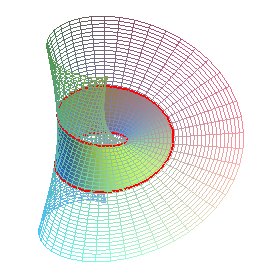
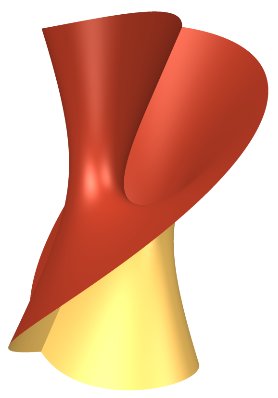
| next surface | previous surface | 2D curves | 3D curves | surfaces | fractals | polyhedra |
MÖBIUS SURFACE


| See the "exam papers" X 1977 math 2 and agreg 1929. |
| Cartesian parametrization: Toroidal equation: Cylindrical equation: Cartesian equation: Ruled cubic surface. Gaussian curvature: Self-intersection line: x = -a ; y = z ; axis of symmetry Ox. Directrix cone with directrix |
The Möbius surface or half-twist surface is the non-developable ruled surface generated by the rotation of a line on a plane turning on itself around one of its lines with an angular speed equal to twice that of the line; it is therefore a special case of rotoid.
The Möbius surface is called this way because its
portion obtained for
with
is
a Möbius strip.
It can also be defined as the ruled surface the directrices
of which are a circle (here, ),
the axis of this circle (here, Oz) and a line forming an angle of
45° with respect to the plane of the circle, the projection of which
is a line tangent of the circle (here, x = -a , y = z ). Since it
has two linear directrices, it is a conoidal
surface.
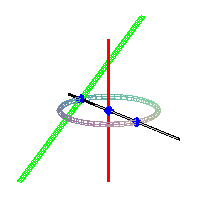 |
The respective intersection points between the generatrix
and the circle, the red axis, and the green line, are |
Besides, the Möbius surface is projectively equivalent
to Zindler's conoid; indeed
the change
transforms the homogeneous equation
of the Möbius surface into the equation
of this conoid.
| The sections by the horizontal planes z = b
are strophoids,
with equation |
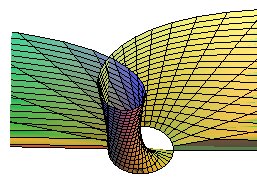 |
| The section by the sphere with center O and radius R is composed of a Viviani curve and of the equator of the sphere. | 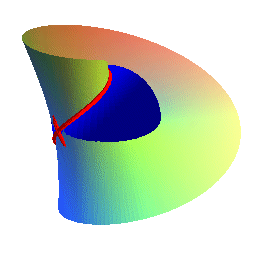 |
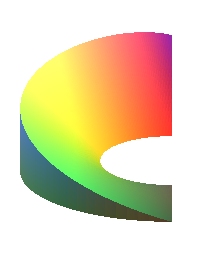
| next surface | previous surface | 2D curves | 3D curves | surfaces | fractals | polyhedra |
© Robert FERRÉOL 2018